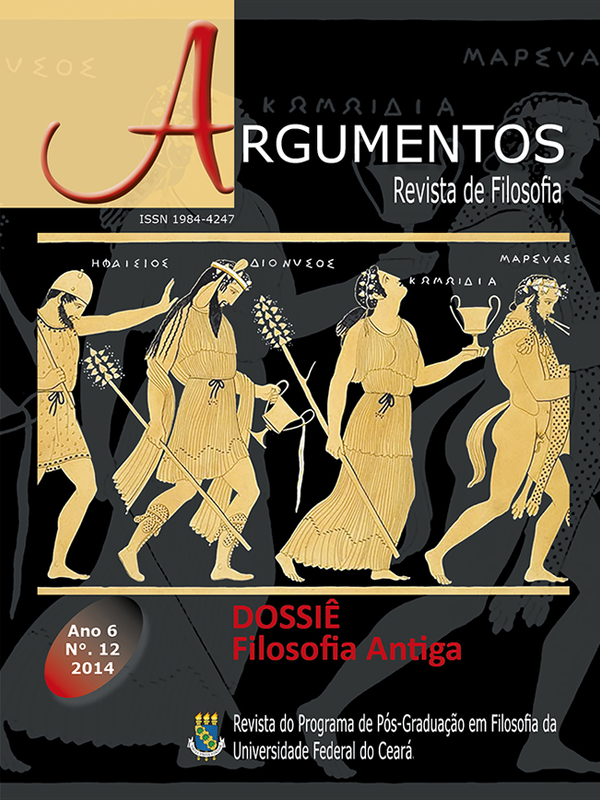Pleasure and madness at Filebo
Keywords:
Plato Philebus. Pleasure. Madness.Abstract
The paper analyses some passages of Plato ́s Philebus in which some connections between pleasure and madness are discussed. First (15D9-16A3), Socrates points to the excesses a young man tends to go through as he explores the articulate use of arguments, in a sort of enthusiasm that leads to situations of aporia. In the second passage (36E5-8), against the hypothesis of there being false pleasures, Protarchus suggests that not even in a state of madness would someone consider that they are having pleasure when, in fact, they are not. Thirdly (45D6-E4), the discussion turns to the experiencing of pleasure without any limits, that is, the lack of discernment and thereby of moderation are judged to be the equivalent of some kind of madness. The point is to evaluate the value of pleasure in the greater scope of the mixed life, with both quantitative and qualitative criteria. Finally (63D2-64A5), in the confrontation between pleasures and thoughts, it is brought to consideration how much the excess of some goes against the maintenance of others, leading souls to madness, forgetfulness and carelessness.Downloads
Published
Issue
Section
License
Argumentos magazine is licensed under an International Creative Commons Attribution License.
The Magazine uses CC BY inclusion
1) The authors retain the copyright granted to the magazine or the right to initial publication, with the work regularly licensed under the Creative Commons Attribution, which allows the sharing of the work with acknowledgment of authorship and initial publication in this magazine.
2) The authors are authorized to contract additional applicable contracts, for non-exclusive distribution of the version of the work published in this journal (for example, publication in the institutional repository or as a chapter of the book), recognition of authorship and initial publication in this journal.
3) Authors are authorized and encourage to publish and distribute their work online (for example, in institutional repositories or on their personal pages) at any time before or during the editorial process, as they can generate productive changes, as well as increase the impact and reference of published work.




.jpg)










._._3.png)
1.jpg)
._._._.png)
